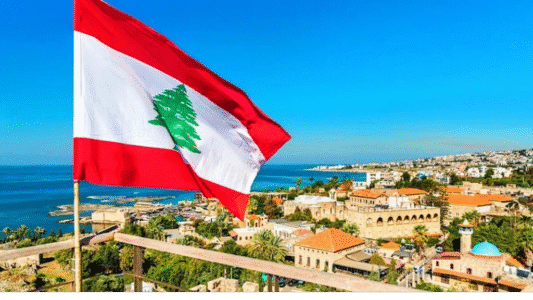The diplomatic vacuum between Beirut and Damascus: willful ignorance or conditional waiting?
May 27, 2025

The diplomatic vacuum between Beirut and Damascus : Willful Ignorance or Conditional Waiting?
The diplomatic vacuum between Beirut and Damascus since Syria witnessed a radical political shift with the fall of the Assad regime on December 8 and the rise of the new administration led by President Ahmad al-Sharaa.
A state of stalemate prevails in Lebanese-Syrian relations, especially on the Damascus side.
Six months have passed without a single visit by a Syrian official to Beirut.
Despite numerous official and unofficial Lebanese visits to the Syrian capital.
In a scene that raises many question marks about the nature of this Syrian disregard and whether it is intentional.
Syrian absence vs. Lebanese presence
While Syrian Foreign Minister Asaad Shibani and a number of Syrian ministers raced to regional and Western capitals, the
Beirut remained absent from this process, despite its geographical proximity and the importance of the joint files between the two countries.
On the other hand, Lebanese delegations have flocked to Damascus, starting with current Prime Minister Nawaf Salam and former Prime Minister Najib Mikati.
as well as ministers, security and party officials.
The absence of Syrian officials from Beirut has not been compensated for by periodic meetings or protocol visits.
With the exception of limited meetings between Presidents Joseph Aoun and Ahmed al-Sharaa in Cairo.
and another meeting between the two defense ministers in Jeddah with Saudi mediation, without translating these steps into a direct Syrian openness to Lebanon.
The file of displaced persons: The core of the crisis and the reason for the diplomatic vacuum between Beirut and Damascus ?
One of the most prominent outstanding issues between the two countries remains the issue of Syrian refugees, which is seen as one of the most important pillars of the bilateral relationship.
The Lebanese street, along with the government, had hoped that the political change in Syria would lead to a new approach to this file, especially after the lifting of European sanctions and escalating Arab support for Damascus.
With the political excuse that previously prevented the return of displaced people no longer exists.
that the former regime did not guarantee a safe return, Damascus was expected to re-prioritize.
primarily coordinating with Lebanon for the return of hundreds of thousands of displaced people.
However, information indicates that the new Syrian administration is currently prioritizing IDPs inside Syria.
The issue of returnees from Lebanon is still postponed, reflecting an unspoken reservation and perhaps an unwillingness to approach the file as quickly as Lebanon expects.
The lifting of sanctions and international aid, changes yet to be capitalized on
Europe’s shifting stance on Syria after the lifting of sanctions.
This is an indication of a radical change in the international approach to the Syrian issue.
It also contributed to supporting opportunities for the safe return of displaced people.
However, this development has not been translated into practical steps by Damascus towards Beirut.
This leaves the question unanswered: Is Syria dealing with Lebanon as a postponed file until its internal and external priorities are sorted out?
Or are there unspoken conditions that have yet to be met by the Lebanese side?
In this context, Lebanese President Joseph Aoun is credited for his clear position before a U.S. delegation.
when he emphasized that “improving Syrian economy a prerequisite for the return of displaced people.
He called on the United Nations to direct aid to the Syrian interior instead of continuing to support the displaced in Lebanon.
Lebanon fears refugees will become economic refugees
Data suggests that the categorization of refugees in Lebanon is gradually changing.
from political refugees to economic refugees, especially after the political reasons that prevented their return no longer exist.
This is what some international actors are hinting at. Ironically, despite this change, the international community
is still procrastinating in responding to the Lebanese demand to direct support to IDPs inside Syria.
This raises question marks about the role of the UNHCR and the seriousness of the international community in addressing the issue fundamentally.
Government plan for the return of 400,000 IDPs awaits green light from Damascus
The Lebanese government has reportedly drawn up a plan for the return of some 400,000 displaced people in installments.
based on security and political coordination with the Syrian side, but the plan cannot be implemented without the approval of Damascus.
which is still procrastinating on giving the green light, under the pretext of “focusing on the Syrian interior first,” according to sources.
This delay is weighing heavily on Lebanon’s internal situation, where economic and service crises have worsened as a result of the pressure of displacement, especially in the fields of health, education and infrastructure.
In addition to escalating social tensions between Lebanese and IDPs in some areas.
Could the Sharaa-Aoun summit be a gateway to restoring relations?
In the face of this reality, the solution seems to pass through a political summit at the highest levels, which could bring together Presidents Ahmad al-Sharaa and Joseph Aoun to reopen channels of coordination and address outstanding issues. Lebanon can no longer afford further delays, especially with the intensification of the economic crisis, the decline in international aid, and the escalation of popular pressure.
This summit, if it takes place, could be an entry point to revive bilateral agreements and understand the mechanisms for the return of displaced persons, in addition to other files related to security and economic coordination and reconstruction, which could be an opportunity for Lebanon to benefit from upcoming investment projects in Syria.
The diplomatic vacuum between Beirut and Damascus – Cold estrangement and the key to a solution in Damascus
Between an undeclared diplomatic estrangement and cautious Syrian behavior, the Lebanese-Syrian file is teetering on the edge of waiting. Despite its openness to the world, Damascus still closes the door to Beirut, suggesting that the relationship between the two countries needs to be reset, especially since delays in addressing bilateral issues will increase Lebanon’s burdens and cause Syria to lose a natural ally on its borders.
Thus, the question today is no longer why Damascus is boycotting Beirut, but how long will this boycott last, and what is the political price required to reopen channels of communication?
The post The diplomatic vacuum between Beirut and Damascus: willful ignorance or conditional waiting? appeared first on 961 Today Lebanon Today.








